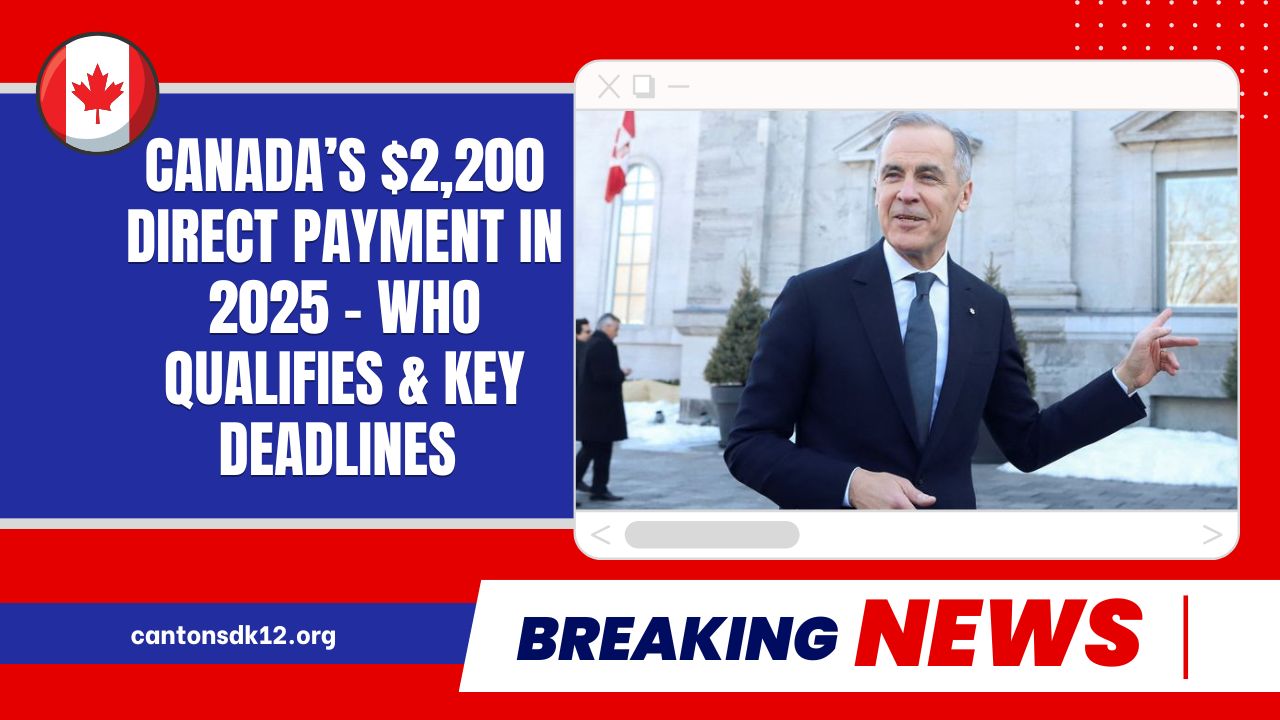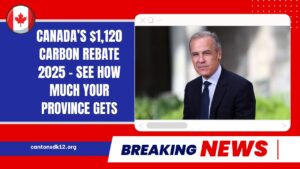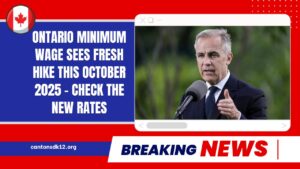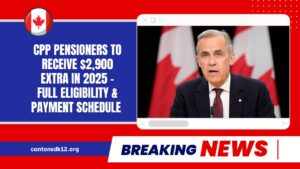Rising costs—from groceries to healthcare—have stretched Canadian household budgets thin in 2025. In response, the federal government is rolling out a $2,200 one-time, tax-free direct payment to provide essential financial relief.
Let’s break down who qualifies, critical timelines, application steps, estimated payment delivery, and smart ways to make the most of it.
Why the $2,200 Payment Matters in 2025
Inflation has sharply increased expenses—especially for essentials like housing, utilities, and food.
For Canadians on fixed or limited incomes—particularly seniors, individuals with disabilities, and low-income households—the $2,200 direct payment offers tangible relief when it’s needed most.
Who Is Eligible for the $2,200 Direct Payment?
The payment targets three main groups:
| Group | Key Criteria |
|---|---|
| Seniors (65+) | Must be 65 or older by December 31, 2025 and a Canadian citizen or PR for at least 10 years |
| Persons with Disabilities | CPP-D recipients may qualify regardless of age, plus residents with qualifying disability status |
| Low-Income Individuals/Families | Single applicants with annual income under $35,000; households with combined income under $45,000 |
Automatic vs. Application-Required
| Recipient Type | Application Required? | Payment Date |
|---|---|---|
| Existing OAS / GIS / CPP-D recipients | No, automatic deposit or cheque is sent | October 29, 2025 |
| Other eligible individuals | Yes, application required by September 30, 2025 | October 29, 2025 if approved |
If you’re already receiving Old Age Security (OAS), Guaranteed Income Supplement (GIS), or Canada Pension Plan Disability (CPP-D), you’re set—no action needed.
Others who meet the criteria must apply by September 30, 2025 to receive the payment on the same date, October 29, 2025.
How to Apply for the $2,200 Payment
Step 1 – Check Eligibility
Use the Benefits Finder tool on Canada.ca to see if you qualify.
Step 2 – Gather Documents
- Government ID (e.g., driver’s license, passport, PR card)
- Residency proof (utility bill or lease)
- Income proof (Notice of Assessment or pay stub)
Step 3 – Get the Application Form
- Download it from Canada.ca, or
- Pick one up at a Service Canada Centre
Step 4 – Submit the Form
- By mail to the address on the form, or
- In person at a Service Canada office
Step 5 – Await Confirmation
Processing takes 4–6 weeks—approved applicants will receive payment on October 29, 2025.
How Will the Payment Be Delivered?
- Direct Deposit – fastest and most secure
- Cheque by Mail – for those without direct deposit setup
Smart Ways to Use the $2,200 Payment
Though unrestricted, this payment is often applied toward:
- Rent or mortgage
- Groceries or medication
- Utility bills
- Emergency expenses
What Happens If You Miss the Deadline?
If you’re required to apply but do so after September 30, 2025, you won’t receive the payment. Early application is strongly recommended to avoid missing out.
As Canada continues to grapple with rising living costs, the $2,200 direct payment offers critical, tax-free support for seniors, people with disabilities, and low-income households.
For those already receiving OAS, GIS, or CPP-D, the benefit arrives automatically on October 29, 2025. Others must apply by September 30, 2025, to receive the same payment.
To make the process smooth:
- Check eligibility using Benefits Finder
- Gather documents early
- Apply on time
Secure your eligibility and help ease the financial strain during this challenging year.
FAQs
Is this payment taxable?
No—this $2,200 direct payment is completely tax-free and won’t impact your income taxes.
Why am I not being paid automatically?
Automatic payments are limited to those already receiving OAS, GIS, or CPP-D. If you qualify under other criteria but don’t belong to any of those groups, you need to submit an application by September 30, 2025.
What documentation do I need to apply?
You’ll need proof of identity, Canadian residency, and income—such as government ID, a utility bill or rental agreement, and your latest Notice of Assessment or pay stub.




